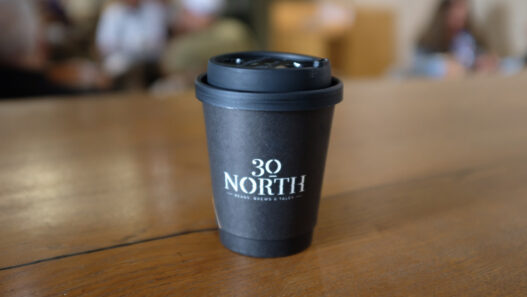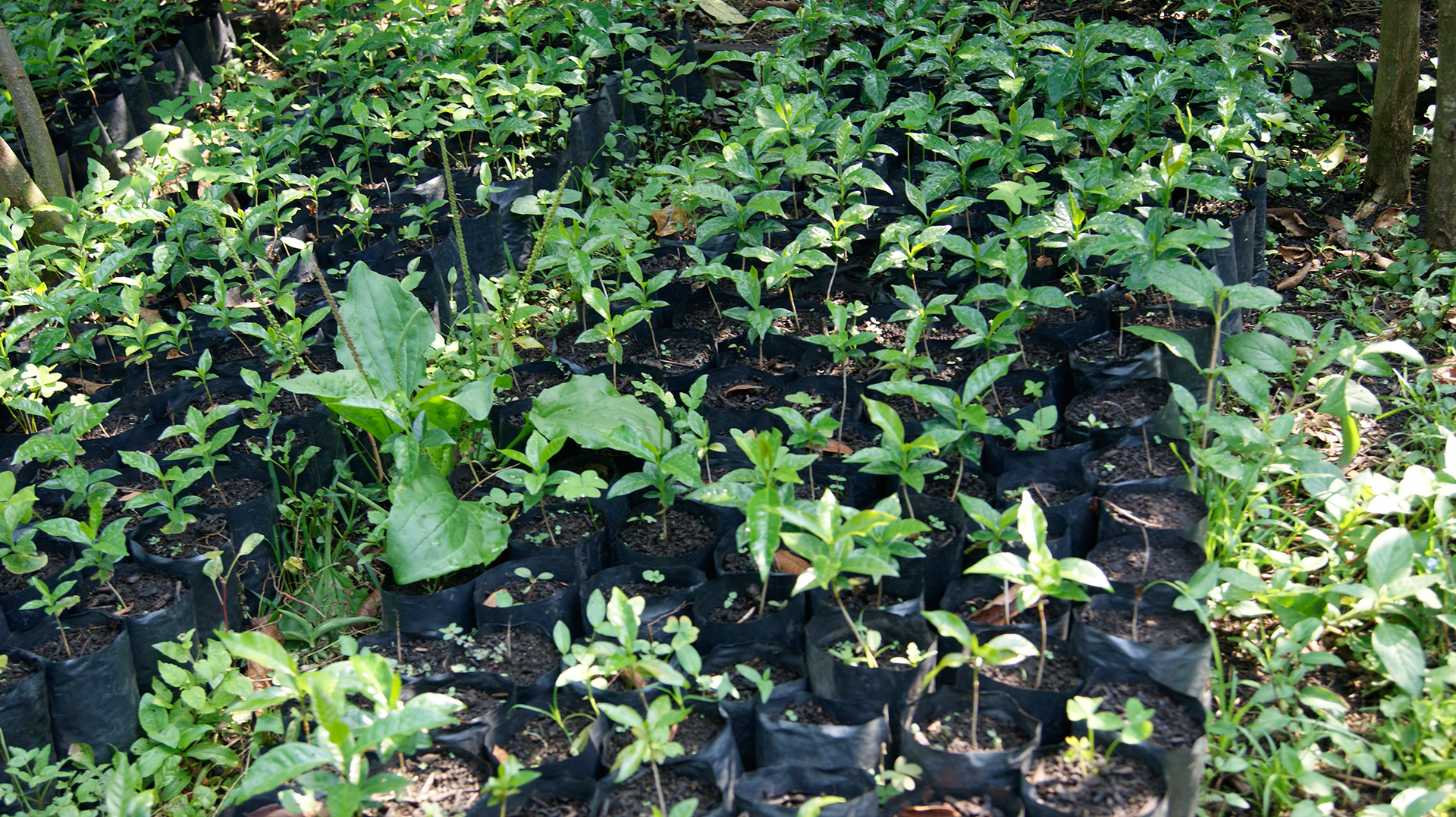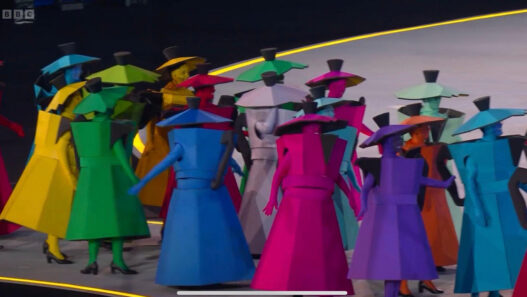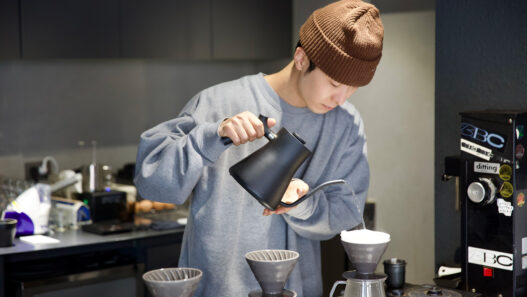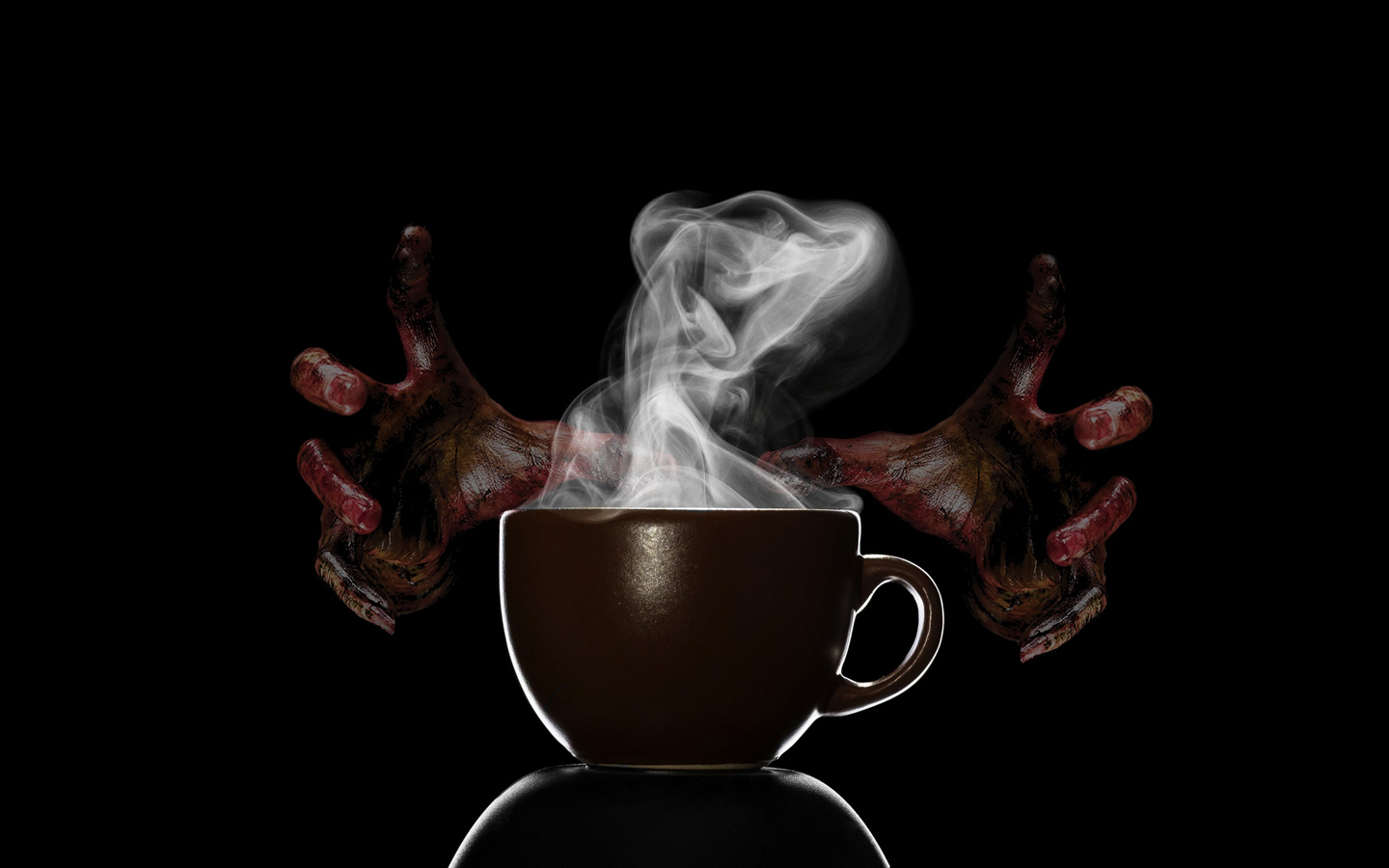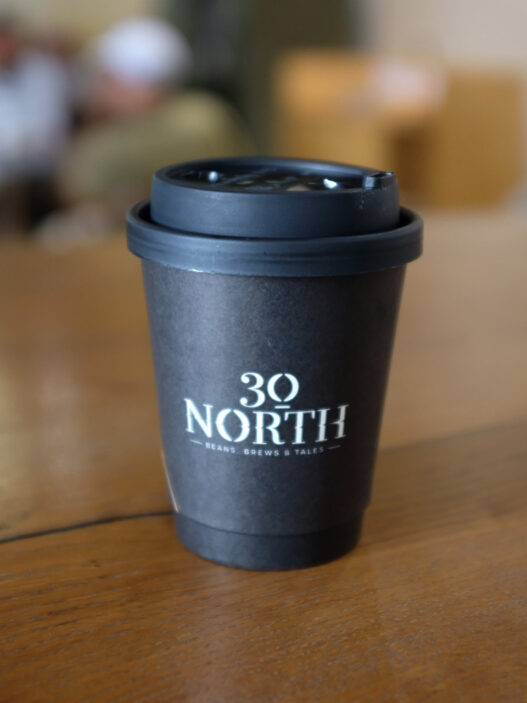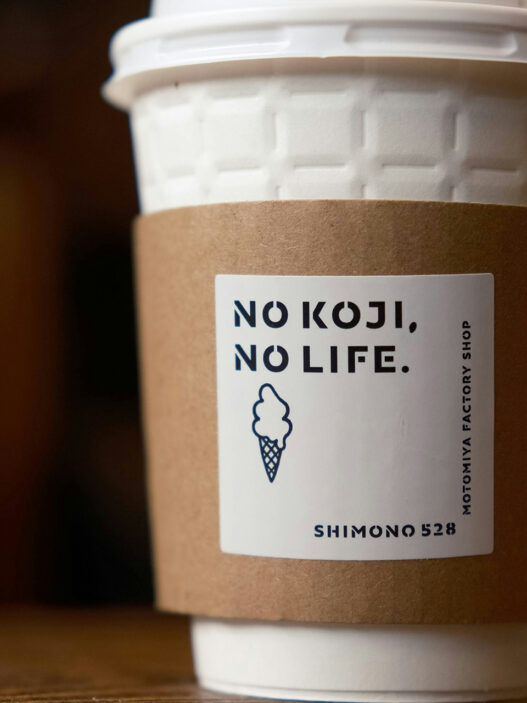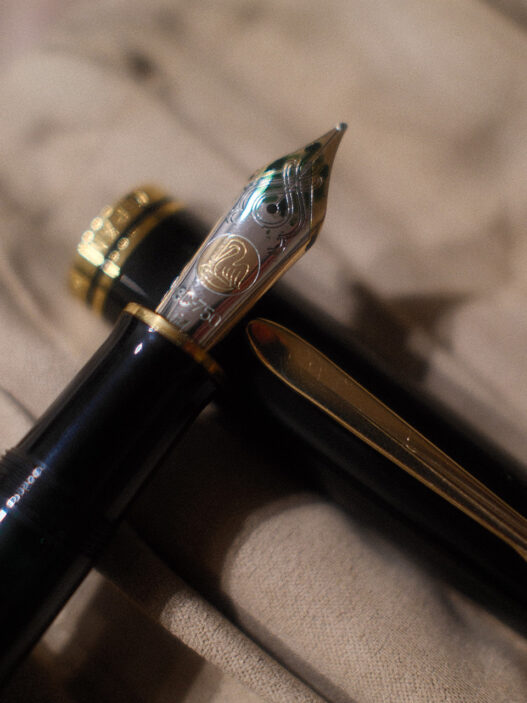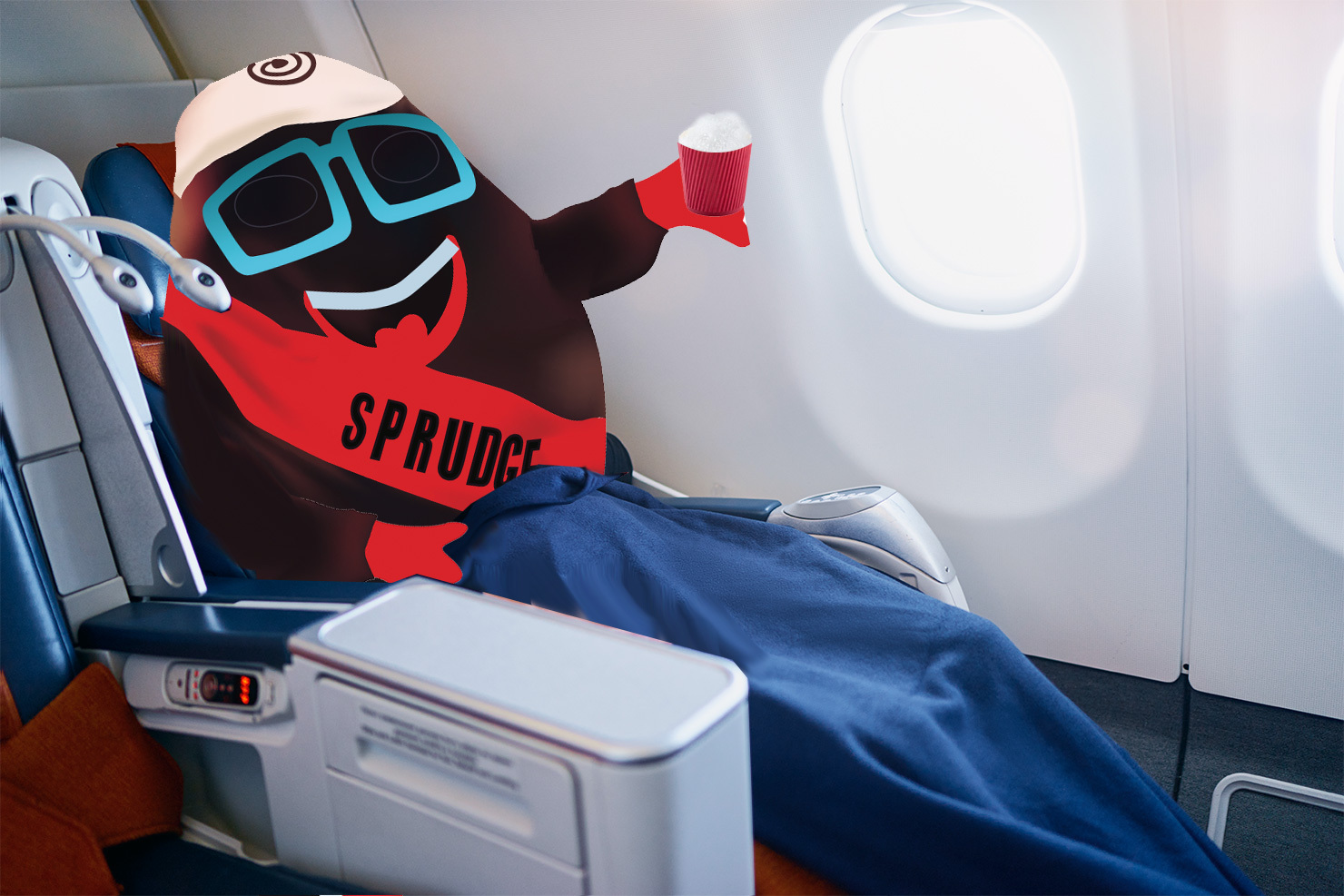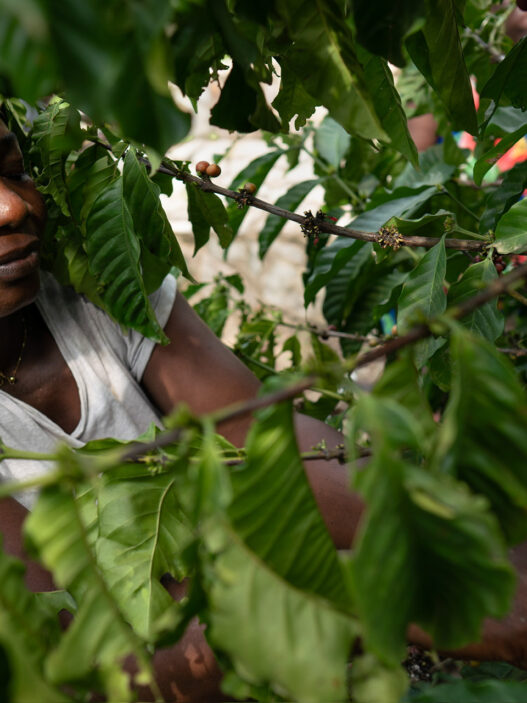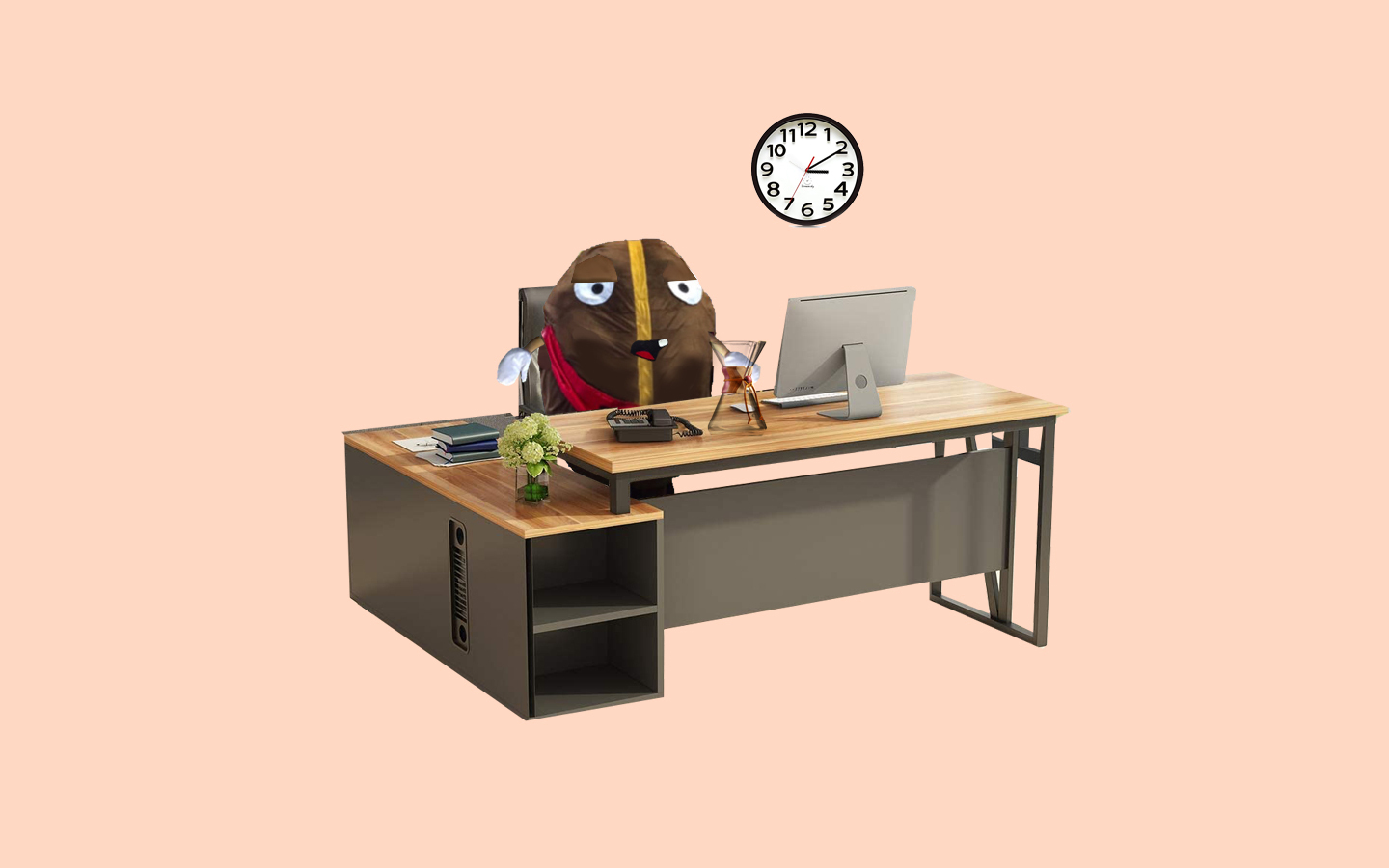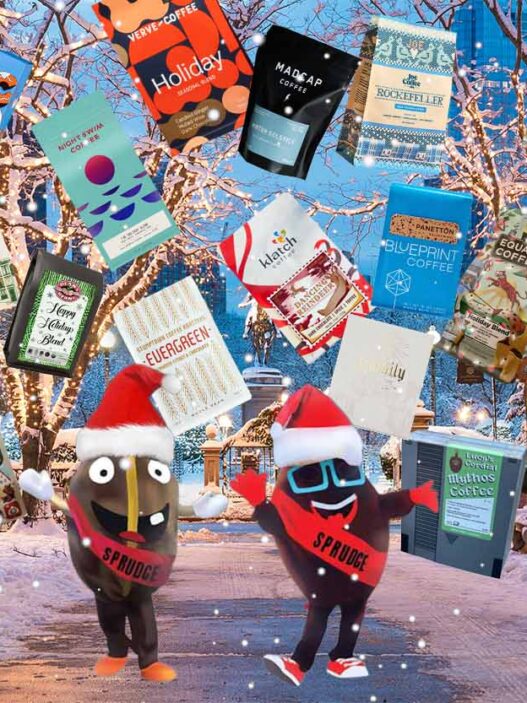It must be four years without coffee by now, Gray thought as they dug their hands further into their coat pockets, shoulders hunched against the wet winter wind. The light was fading into gray as they walked down Massachusetts Avenue, sneaking a glance at where the old Boston Pops building used to be. Six without music, they thought, looking back down to watch their feet make quick work through the snow.
They remembered how strange it was that first silent day showing up for work at The Bean & Gone Cafe, instinctively clicking on the stereo. The first chord set off the new building alarms, and within moments the cafe was surrounded. It took more than 30 minutes to convince the authorities it had only been a mistake, officer, I promise, I wasn’t trying to be defiant. Yes, certainly I’ll get used to it, we’ll all get used to it. You’re right, it’s probably better this way. Definitely safer, I agree.
Turning up onto Huntington, Gray tried to remember what chord it was, the last one they had heard. Nothing but the sound of shoes in snow, a kind of music on its own. They can’t take away everything, Gray thought. Anything can be music.
Coffee is different, though: Coffee was the hardest one to say goodbye to. Not just anything can be coffee.
By the time the notice came through, most folks had given up raising their voices against the forbidding. There had been such a noise at first, protests and violence as militarized police took away television and movies, then magazines and books, then written words of any kind—instruction manuals, greeting cards, text messages. Of course, it made sense for those to be the first things to go: Cut off communication, create isolation. Not all at once, but over time. At first, we didn’t all notice what was missing. It took a few weeks before we realized our phones had stopped buzzing with news or a “hyd?” from a friend.
When it started getting weird, specific—scary—the protests had already completely stopped, since it had become so hard to stay in touch. Nothing with wheels, no houseplants, no shoes that required shoelaces, no fermented food: Teams of masked people (they could be anybody, “Does that person look familiar?” you’d ask yourself) would enter and search a house or office building, silently removing whatever offended that week. Before long, everything was pretty spare, like a nightmare version of minimalist design.
Gray had realized early on that they would come for coffee, it was only a matter of time really, especially if they’d come for text messages. First, they bought 12oz retail bags of coffee one at a time after a shift from Bean & Gone, hiding them under a laundry basket. Once it became forbidden to sell coffee except in its brewed form, Gray would sneak handfuls of beans out of the hopper as they were closing shop, holding them tightly in a fist inside a jacket pocket as they walked home to make sure they didn’t make any noise rattling against each other. Brewing was no easier: Electric grinders were too loud, attracted attention; when Gray’s hand grinder broke, they investigated ways to crush the beans instead. AeroPresses were small enough to hide, but when paper was outlawed, all filters disappeared.
That’s when things started to get truly desperate. Gray had seen friends and former colleagues suck the chocolate off of coated espresso beans in order to have enough to brew with, then strain the liquid through an old T-shirt. The shop closed. Most people stopped talking about coffee at all about two years ago, there just wasn’t any left. They thought, anyway.
Though Gray was prepared for coffee to become illegal, they never expected it would last this long. Surely some kind of revolution would take place, certainly things would change? Three years into the coffee ban, they remembered that coffee was often the fuel of those revolutions, and coffee houses the center of political action and activism. Even Gray, who in a former version of life had chained themselves to the Ruggles station in protest of police brutality, before the police became what they are today.
Today.
Gray thought the word and smiled bitterly, walking tentatively around the side of the crumbling house on Calumet where they had miraculously managed to stay for the past 11 months, after the Fens had been cleared out “to make room,” though no one had said for what.
Today might be the last time I taste coffee.
They felt the chunk of the door close behind them and breathed easily for a moment, finally out of view on the street. Though hardly anyone went out these days (to go where? for what?), there was always a feeling of being watched—maybe from a window, maybe from the sky.
“Today?”
Gray jumped and let out a startled yelp. Marco was partially hidden in the shadows of the hallway, and he had a habit of walking very quietly. Then again, everything was quiet: It could be dangerous to make much sound.
The two were strangers until necessity made them “roommates,” quite literally: The two of them had moved with their few remaining belongings into the empty house, spending most of their time huddled in the room farthest from the street to avoid attention. It took several weeks before Gray felt comfortable saying anything at all to Marco; they had already learned the hard way that anybody might be listening, and that almost no one was exactly what they seemed. After a few weeks, though, Gray started to think that maybe Marco was different somehow, touched by a kind of stillness that made the whole ordeal of modern life palatable. He spent hours sitting cross-legged with eyes closed, listening to his own rhythmic breathing. He managed to come up with decent-tasting things for them to eat, despite the fact that all green, red, brown, and yellow foods were forbidden. He even shared his music with Gray, which is what inspired them to let him in on the coffee: Gray hadn’t heard music in years, and the joy and nostalgia was palpable the first time they huddled together over the ancient iPod that Marco had uncovered beneath a loose floorboard. They let the battery run down to 3% listening to T.Rex once a week; Gray would close their eyes and remember closing the cafe to “Metal Guru” at top volume.
When the time came, they’d share the last coffee and the last tunes. “Let’s say goodbye to both at the same time,” they’d pledged.
The time had come.
While Marco symbolically queued up “Children of the Revolution,” Gray got to work crushing coffee beans using the side of a heavy knife. Long ago they’d stopped being particularly concerned about grind size uniformity. They also didn’t have any means to heat water, though there was still some good warmth that came out of the kitchen tap. That would have to do, too. Gray prepared the coffee cupping-style, in child-size cereal bowls that had been left behind by whoever once lived in the house. They broke the crust with a rusty teaspoon.
Was this the last coffee on earth? Gray’s supply had dwindled over the past two years, and for most of the last few months they had resorted to eating individual beans in an attempt to stretch what was left. When only 9 grams remained, they knew it was time. One final cupping.
Marco and Gray stared at the cup. It wasn’t steaming, but it was brown and semi-warm and offered more comfort than either of them had experienced in a long time. Gray bent at the waist over the cup to capture some of the aroma, closing their eyes. Suddenly, a shuddering crash, the sound of liquid splashing, and violent laughter filled the room. Gray shot upright, their eyes as wide as saucers. Coffee everywhere, the cereal bowl in pieces.
“Fooled you,” Marco sneered. “It was a long shot, and I thought for sure you’d know something was brewing.” He chuckled at his own terrible joke.
Faces appeared from what seemed like every corner of the house, hands reached out and grabbed Gray, dragging them to the ground. Their face was pressed against a patch of grounds and tepid coffee water, and they inhaled deeply. That’s as close as anyone will ever come to coffee again, they thought, and then they let a bitter smile pass across their face.
I guess it really is death before decaf.
Ever Meister (@notjustmeister) is a coffee professional and journalist based in Saint Paul, Minnesota, and the host of In Good Taste on the Sprudge Podcast Network.




